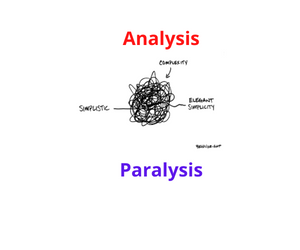Religion is a dangerous furrow to plough, with every risk of upsetting any and everybody. This week’s post is about religious fervour; a doctrine and how it is followed. It is not about the rights and wrongs of one versus another.
In the book, Scaling Up Excellence: Getting to More Without Settling for Less, the authors Sutton and Rao use religion very cleverly to describe two different approaches to organisational structure and where the one or the other fits better. They compare and contrast catholicism and buddhism. The former is strict, with precise behaviour required. One way to do things globally. Buddhism, by contrast, is described as setting a framework and allowing for more local decision making within that. One company might combine the two; quite surprisingly, the authors describe who MacDonalds does just that. French fries are made one way and one way only everywhere. Restaurants may differ in decor and some local variation in menu is allowed; alcohol in France and a local McRib in Germany, where they love their pork.
In the last post, I mentioned how important procedures are. A wise industry veteran and old friend, Steve Lachaga, pointed out how important the holy trinity of policies, procedures and controls is. Reading the Scaling up book at the same time, made me realise that we can and should borrow to help our understanding. And, it made me realise that there is a place for religious fervour.
Policies are something that are like Buddhism; they need to be about the “what” that is expected of an organisation. They are guidelines, they are reviewed and updated infrequently.
Procedures are something akin to Catholicism; they are about the “how” that is expected in an organisation. Procedures set out clear rules; exactly how things have to be done. A “Standard Operating Procedure (SOP)” enshrines the current doctrine. That doctrine is to be followed each day unless and until something changes.
Control is best left to the Operational Risk (OpRisk) team. There should be an element of Monty Python here: nobody should expect the Spanish inquisition. You know it exists, but you don’t know when it is coming. So, in the meantime, you follow the doctrine; religiously
Now, having stirred religion into the mix, we could have an interesting philosophical debate about whether Catholicism does indeed include the capacity and willingness to change and not cling to the way things were done in the past. No space for that here. At the coal face of daily operational life, the operations end of an investment bank has to be able to ensure that there is a focus on the doctrine of the procedure, an openness to change and a quick process for making those changes.
Lessons to be Learned: “There is nothing special about an investment bank. On a normal day, you ought to be able to run it between 8 and 6 or you must be doing something wrong.” That really is a quote; it dates back to my first ever interview with any kind of bank and when I was leaving university. Back then it was an off the cuff remark and one borne out of no little naivety. Now, I would say the same thing, but based on experience. Bankers can and should learn from other industries.
Previous Posts: Are available on the 3C Advisory website, click here.
Publications:
The Bankers’ Plumber’s Handbook
How to do Operations in an Investment Bank, or Not! Includes all the Blog Posts, with the benefit of context and detailed explanations of the issues. True stories about where things go wrong in the world of banking. Available in hard copy only.
Cash & Liquidity Management
An up to date view of the latest issues and how BCBS guidance that comes into force from Jan 1 2015 will affect this area of banking. Kindle and hard copy.
Hard Copy via Create Space: Click here
Amazon UK: Click here
Amazon US: Click Here
Thanks for your support and thanks to the numerous contributors.
Share on:



